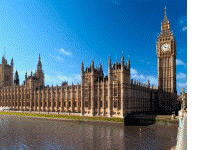5 Tips to Keep London Arbitration from Being a Foreign Experience
|
|
So What Now?
Bermuda Form insurance policies are increasingly common given the high excess limits they provide. However, a coverage dispute is almost guaranteed if your claim is large enough. The Bermuda insurers will rely on the “advantages” baked into the policy form’s arbitration clause when negotiating the value of a policyholder’s claim.
Did Your Lawyer Write The Book On Bermuda Form Arbitration? Ours Did.
Lorie Masters, a partner in Perkins Coie’s Insurance Recovery practice in Washington, D.C., is the author of Liability Insurance in International Arbitration: The Bermuda Form (Hart Publishing), which the Court of Appeal of England and Wales has called "the standard work on the topic." It won the 2012 British Insurance Law Association Book Prize for outstanding contributions to the literature on insurance law. Like other Perkins Coie coverage lawyers, Lorie has extensive experience navigating the foreign waters of the Bermuda Form.
Have Your Lawyers Arbitrated Under The Bermuda Form …And Won Big? Ours Have..
Tennessee Valley Authority (TVA)
Perkins Coie partners Vivek Chopra, Mary Rose Hughes and Karin Aldama secured more than $335 million for TVA from its liability and property insurers for the loss incurred by TVA due to the largest fly ash spill in U.S. history. First, TVA reached a highly favorable (near limits) settlement with Arch Bermuda, one of the three Bermuda excess liability insurers. Next, after a month-long arbitration, Perkins Coie won full limits, attorney’s fees and interest in excess of $170 million from another Bermuda excess liability insurer. This win is reported to be the largest judgment ever secured against a Bermuda insurer at trial. In December 2014, TVA obtained an award of $50 million—full policy limits—after a four-week trial - against the last remaining insurer. We overcame the insurer’s 17 defenses, which included challenges to the legitimacy and scope of federal and state clean-up orders and representations made in TVA’s insurance application. In December 2015, Perkins Coie completed the matter by winning nearly $20 million in interest and costs from this last insurer.
Perkins Coie’s representation of TVA received extensive media coverage in domestic, Bermudian and insurance trade publications.
In re Arbitration of Ticona ( formerly Hoechst Celanese Corp.) v. XL Ins. Co., Ltd.
Perkins Coie partner Lorie Masters acted as lead trial counsel for the policyholder in this arbitration. A three-member arbitration panel, comprised of a retired chief judge of the United States Court of Appeals for the Third Circuit, a member of the House of Lords, and a distinguished Queen’s Counsel, awarded the policyholder client the full policy limit of $75 million, plus $20 million in pre- and post-judgment interest for mass-tort liabilities covered under the policyholder’s excess liability Bermuda Form policy. Follow-on arbitrations with other insurers settled favorably before trial.
- Business Interruption
- Cyber Attacks and Data Breaches
- Directors’ and Officers’ Liability
- D&O Checklist
- Energy Practice
- Environmental Liabilities
- Fracking
- International Arbitration
- Litigation Defense Costs
- Marine Insurance
- Natural and Man-Made Disasters
- Policy Audits
- Product Liability
- Real Estate Transactions




 American policyholders often find international arbitration a confusing process, necessitating strategies that differ from those used before an American jury. However, policyholders can navigate these waters and beat the insurance companies—who are repeat players in London arbitrations—at their own game.
American policyholders often find international arbitration a confusing process, necessitating strategies that differ from those used before an American jury. However, policyholders can navigate these waters and beat the insurance companies—who are repeat players in London arbitrations—at their own game.